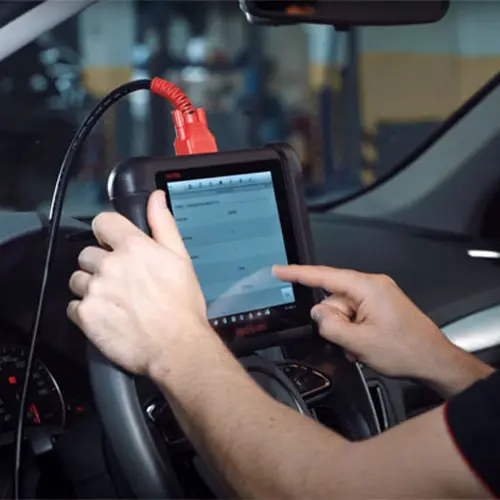Emergency Car Key Repair: A Comprehensive Guide
Car keys are an important part of vehicle ownership, and their unexpected malfunction can cause considerable inconvenience. Whether lost, broken, or damaged, understanding how to handle emergency car key repair is important for any vehicle owner. This detailed guide explores different aspects of car key repair and replacement, dealing with common issues, potential solutions, and the value of expert services.
Understanding Car Keys
Modern car keys come in various types, each including unique innovations and performances. The primary types include:
- Traditional Mechanical Keys: The most basic form, these keys operate through a mechanical locking mechanism.
- Transponder Keys: Equipped with a chip that communicates with the car's ignition system for boosted security.
- Key Fobs: Remote access systems that frequently include keyless entry features.
- Smart Keys: Advanced systems that enable keyless ignition and entry, normally found in newer vehicles.
Typical Issues with Car Keys
In emergency scenarios, understanding the cause of car key breakdown can help determine the ideal technique for repair. Some regularly experienced problems consist of:
- Key Breakage: Often takes place due to use and tear or extreme pressure when inserting or turning the key.
- Lost Keys: Misplacement or loss of keys can leave a vehicle owner stranded.
- Dead Key Fob Battery: A common problem with remote keys, resulting in failure in keyless entry or ignition.
- Transponder Key Malfunction: If the chip in the key is harmed, the vehicle might not acknowledge the key.
- Lock Cylinder Issues: Problems with the ignition or door lock cylinders can prevent the key from turning properly.
Do It Yourself Emergency Car Key Repairs
Before availing professional services, certain circumstances may enable DIY repairs. Nevertheless, these approaches depend on the concern at hand. Below are some methods:
1. Broken Key Repair
Materials Needed: Super glue, a set of pliers, and wet wipes.
Steps:
- Carefully line up the two pieces of the broken key.
- Use a little quantity of very glue to the break and hold the key together for a couple of minutes.
- Wrap the key with tape to provide additional support while the glue dries.
- If the key breaks once again, think about getting a duplicate made.
2. Dead Key Fob Battery Replacement
Materials Needed: New battery (usually CR2032), little flat-head screwdriver.
Actions:
- Open the key fob utilizing the screwdriver.
- Remove the old battery thoroughly.
- Change it with a brand-new battery, guaranteeing the favorable (+) side faces the appropriate direction.
- Close the fob and test the functions.
3. Lock Cylinder Issues
If your key won't turn in the lock, it may be due to particles or concerns with the cylinder itself.
Products Needed: Lubricant spray, an old tooth brush or cloth.
Actions:
- Spray a percentage of lube into the lock cylinder.
- Use a fabric or old tooth brush to clear any debris or dirt.
- Attempt to turn the key carefully.
When to Seek Professional Help
While many concerns may be fixed through DIY techniques, some problems require the competence of a professional locksmith or car dealer. The following scenarios normally call for professional intervention:
- Severe Damage: If the key is significantly harmed or broken, replacing it might be needed.
- Transponder Key Issues: Expert reprogramming may be needed if the key stops working to communicate with the vehicle.
- Key Duplication: For intricate key types, a locksmith makes sure accurate duplication or replacement.
Benefits of Choosing Professional Services
- Competence: Professionals have the necessary training and experience to deal with numerous kinds of keys.
- Time Savings: Instead of experimentation, specialists can fix problems effectively.
- Access to Technology: Locksmiths can reprogram transponder keys and key fobs that require specialized devices.
Comparison Table: DIY vs. Professional Services
| Aspect | DIY Solutions | Specialist Services |
|---|---|---|
| Cost | Low (very little tools) | Higher (service charges) |
| Skill Required | Fundamental | Advanced |
| Time Efficiency | Variable | Quick |
| Repair Capabilities | Minimal to minor concerns | Wide range of repairs |
| Tool Accessibility | Fundamental tools | Specialized devices |
Often Asked Questions (FAQs)
1. Can I get a car key made without the original?
Yes, a locksmith can typically create a duplicate key utilizing the vehicle's VIN (Vehicle Identification Number).
2. The length of time does it require to change a car key?
The time needed depends on the key type and the intricacy of the locksmith's work. Fundamental keys may take a few minutes, while electronic key fobs may take longer.
3. Will my car warranty cover key replacement?
Normally, car service warranties do not cover key replacement. However, it's finest to contact your dealership regarding protection specifics.
4. Is it safe to buy car keys online?
Buying car keys online can be risky; it's vital to make sure that the provider is reputable. Lots of keys require programming that can only be done by experts.

5. What should I do if my key gets stuck in the ignition?
If your key is stuck, avoid requiring it out. Rather, switch off the vehicle, guarantee the gear is in 'Park,' and carefully wiggle the key. If it doesn't come out, look for expert assistance.
Dealing with emergency car key repairs can be complicated, but comprehending the types of keys, typical issues, and repair alternatives can reduce the tension. While DIY approaches can be efficient for small repairs, understanding when to get in touch with a specialist can conserve time, disappointment, and ultimately, cash. By being proactive and informed, vehicle owners can ensure they are well-prepared for any car key emergency situations.




